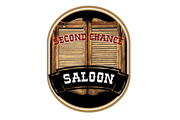Many people say that alcoholics have a disease of the mind, body, and spirit. Although spiritual awakenings are often part of the recovery process, obviously they are far from unique to people in recovery. Such awakenings need not involve religion or “finding God.” In a general sense the experience relates to recognizing and beginning to internalize a connection with that which is beyond self. Some people have an image of an instantaneously life-changing event—the equivalent of being struck by a bolt of lightening or being spoken to by a burning bush (a la Moses) or some similarly dramatic and unmistakable occurrence.
Learn What Spiritual Malady Is And The Role It Plays In Your Recovery
One way to address the spirituality and healing in Glenwood Springs is to connect to all of the amazing natural surroundings that it has to offer. This includes finding a sense of spirituality in the majesty of the Rocky Mountains. David Roger Clawson, M.D., is a Physical Medicine and Rehabilitation physician with an interest in natural prevention and healing strategies for health and wellness. Foundational to this practice is the understanding of threat and defensive physiology versus safety and restorative physiology.
Need Help Finding Treatment?
You should also try to find other people in AA who share your beliefs and struggles; they can provide support and fellowship as well as offer helpful advice. Just remember, even if you don’t share the same beliefs, everyone in AA are united by their shared experience with addiction and their desire to stay sober. Practicing prayer and meditation helps us be mindful of our surroundings and gain consciousness of our spirituality by bringing us closer to our higher power. Strengthening this relationship with a spiritual being brought us hope that we can recover from the mental and physical suffering of alcoholism.
What You Need to Know About Spiritual Illness and Disease
- After reading ‘The Doctor’s Opinion,’ ‘Bill’s Story,’ and ‘There is a Solution,’ in the Big Book of Alcoholics Anonymous, we came to an understanding that we have no control whatsoever over alcohol or drugs.
- The more we focus less on ourselves we allow a god of our understanding to enter our minds and work in our lives.
- Spiritual threats can come in the form of emotional threat or injury.
Some predictive codes are inborn, instincts, but humans actually have very few instincts. Prejudice comes from the predictive codes in the shadows of the brain. We accumulate threat and trauma codes throughout a spiritual malady lifetime that bias the system towards threat and trigger threat physiology easily. It is important that when we embark upon this quest to alleviate our spiritual malady that we are not too harsh on ourselves.
Understanding the ‘Three-Fold Illness’

This is the type of spiritually maladapted behavior that we typically exhibit in active alcoholism. When not treating the spiritual aspect of the disease those behaviors are the types of things that will start to make life unmanageable once again. If we do not get spiritually connected with meditation or prayer with a power greater than us it will bring us closer and closer to that drink or drug. In sobriety, if we are self-reliant we usually end up using anything that will make us feel good externally excessively. We become so fixated on it that almost everything we do leads us to think about getting intoxicated. The mind and alcoholism are so cunning, baffling, and powerful that we often cannot fathom how we ended up intoxicated when relying on our strong willpower to stay sober.

- Jung’s position was ultimately incorporated into twelve-step recovery, specifically Step Twelve.
- Now, the mental obsession is how our minds have been conditioned to crave alcohol and preferred illicit substances.
- Compassion evokes an interest in offering support, understanding, and kindness to others when they struggle, make mistakes, or fail.
- Substances, activities like gambling, eating, or sex, material objects, jobs, money, or people, may fill this hole, but only very temporarily.
- No amount of reason or rationalization with someone under threat, who is physiologically incapable of reason in that moment, will work.
We are not an engine made out of steel that just needs a few parts replaced. We have thoughts, inner longings and spiritual connections. If we don’t take the spiritual aspect of our existence into consideration then we can (and will) run the risk of becoming very cleaned up, pretty, and outwardly successful sober people who are completely bankrupt internally. This state of being not only leads to a return to bondage, but, even worse, it ends up becoming a life that is filled with inner longings that are misdirected, misfed, and misunderstood. Each time we wake up from a modus operandi state of unconscious reflexive autopilot thinking and reacting and become mindfully aware of our internal and external experience, there is an awakening of spirit.
Kickstart Your Recovery at California Detox in Laguna Beach, CA
Tzaraat–A Biblical Affliction – My Jewish Learning
Tzaraat–A Biblical Affliction.
Posted: Sun, 17 May 2015 00:50:58 GMT [source]
It is also the reason why many of us relapse because we cannot stop “obsessing” about drinking and/or using. If a strong recovery is not in place, then this mental obsession will lead to that drink or a drug, and the physical allergy then kicks in. Ultimately all threats are existential threats, but just bits and pieces of this more massive threat. The huge burden that humans bear is the ability to contemplate our own annihilation—death. This biases our system towards threat physiology and plays a significant role in our health and wellness. As we are an inherently spiritual species, we frequently fear a spiritual death as much as a physical death.
Alcoholics Anonymous’ 12-Step Program
- One is a mobilization response to threat where we can prejudge, react, attack, argue, criticize, blame, and experience interpersonal disconnections.
- If you’re struggling to find a Higher Power in AA, know that you’re not alone.
- It used to be a thing to say, “He’s so thirsty” or “She’s so thirsty” when a guy or girl was on the hunt for a sexual encounter.
- The other threat phenotype is one of relative immobilization where we retreat, ruminate, isolate, dissociate and experience bodily and spiritual disconnections.
- One of the core characteristics that makes people vulnerable to addiction (and is also amplified as a consequence of active addiction) is a sense of internal emptiness—a pervasive feeling of being hollow, empty, of something missing.
In The Big Book of AA, the 12 steps outlined are a formalized approach to achieving this transformational change. When these physical, mental, and spiritual components come together, an individual with alcohol use disorder will be rendered powerless to arrest a vicious cycle of obsessions, cravings, and alcohol abuse. According to Alcoholics Anonymous, informally known as The Big Book, when someone with alcoholism drinks, they have an abnormal reaction likened to an allergic reaction. Once a person with AUD takes an alcoholic drink, the body craves more on a physical level. This is why 12-step organizations believe it is not possible to conquer alcoholism using willpower alone. Doing so will give you a better idea of how a spiritual malady affects an alcoholic.



Recent Comments